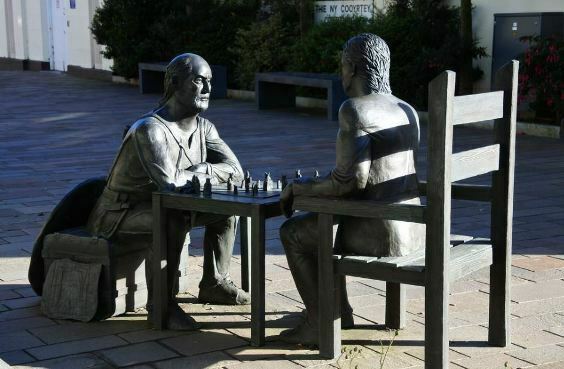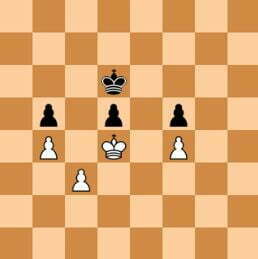
Zugzwang is a favourite word of mine. It’s a German term, meaning ‘compulsion to move’, but it was adopted into English in the early 1900s through chess. Zugzwang is a position on the chess board where you are still in the game, with a number of moves available to you, every one of which loses.
The term is familiar to anyone who plays chess, and has given the name to a novel and a musical composition which have chess as their theme or background. But it has such a general application. Time and again I have summed up a situation to someone as exhibiting zugzwang, explained its meaning, and seen the sad look of recognition on their faces. We have all been that player, caught in that game. In business, in relationships, in politics. Zugzwang.
Those who find themselves in a zugzwang position are not necessarily weak players, but players of any ability who have been lured into weak play. You proceed carefully, mapping out your moves, assessing the likely strategy of your opponent, thinking that the next move will be the one where your own strategy can start to bear fruit. It’s at this point that your hand drifts towards one of your pieces, and the reality of your situation suddenly dawns on you. Your every option is a bad one. You weren’t thinking, or were so focussed on the immediate that you failed to grasp the bigger picture. You were following no strategy at all, if this is where it led you. Now your every move, your every option, loses. Zugzwang.
It is all your own fault. You can blame others, curse your opponent, argue that on another day, or perhaps a dozen moves back, you would have seen what lay ahead, and would never have ended up in such a mess. You were only doing what you believed to be right. The mess was not what you intended; the mess is not you. The mess must be due to someone else. But you are the player, you chose to play the game. Who else is there to blame? You are still in the game, but every move loses. Zugzwang.
Chess provides a metaphor for just about anything. It absolutely reflects the battles of life, the rules we must master because they are the rules, the options before us, the depth of thought required to grasp just a few moves ahead, never mind the enormity of the whole game. It shows that our progress will always measured by how we function against the person opposite us. It is a mirror of the progress of the mind. And in every game you win, you draw or you lose, and then you play another game. You might win this time. You must have learned your lesson. You will think of what the other side is doing, not just what you want to do. You will understand the rules of the game. You must.
But oh no. While you hoping, your opponent was thinking. Look at the board – you are trapped, again. You are still in the game, but every move loses. Zugzwang.
